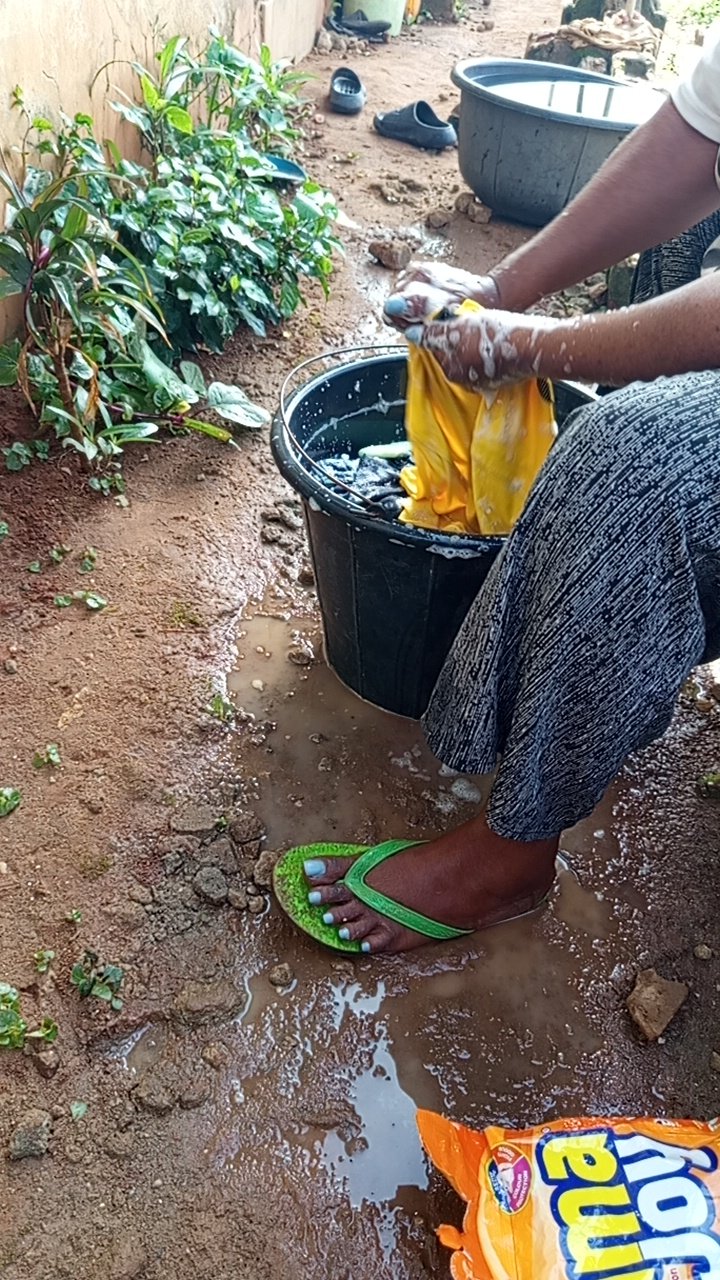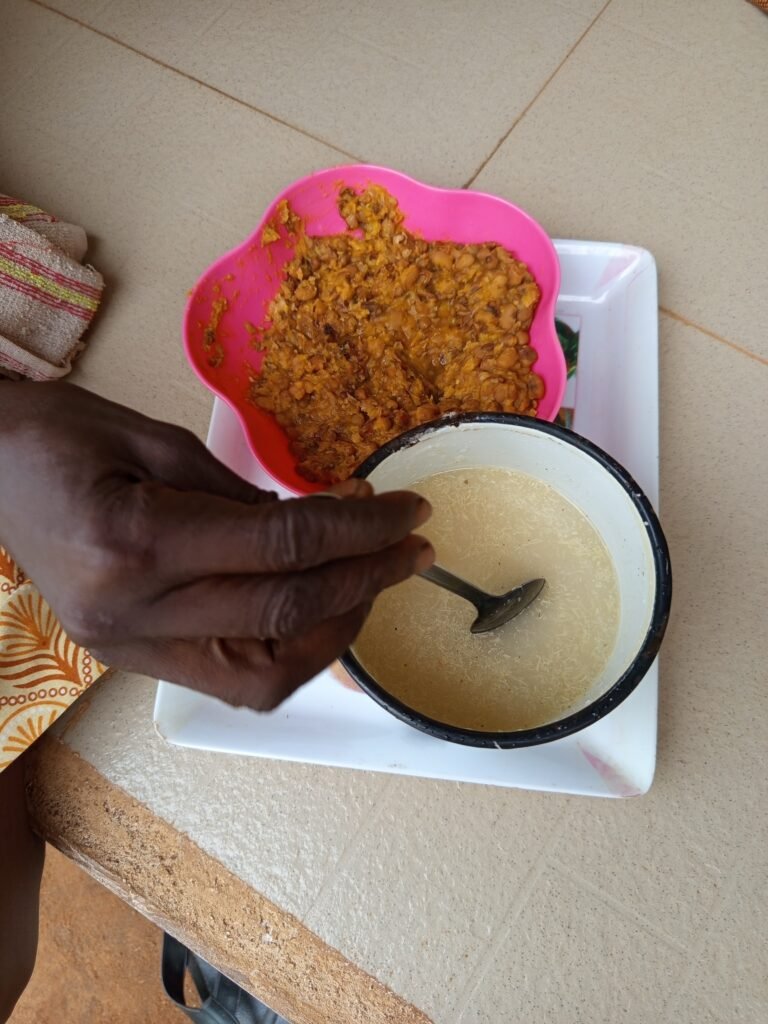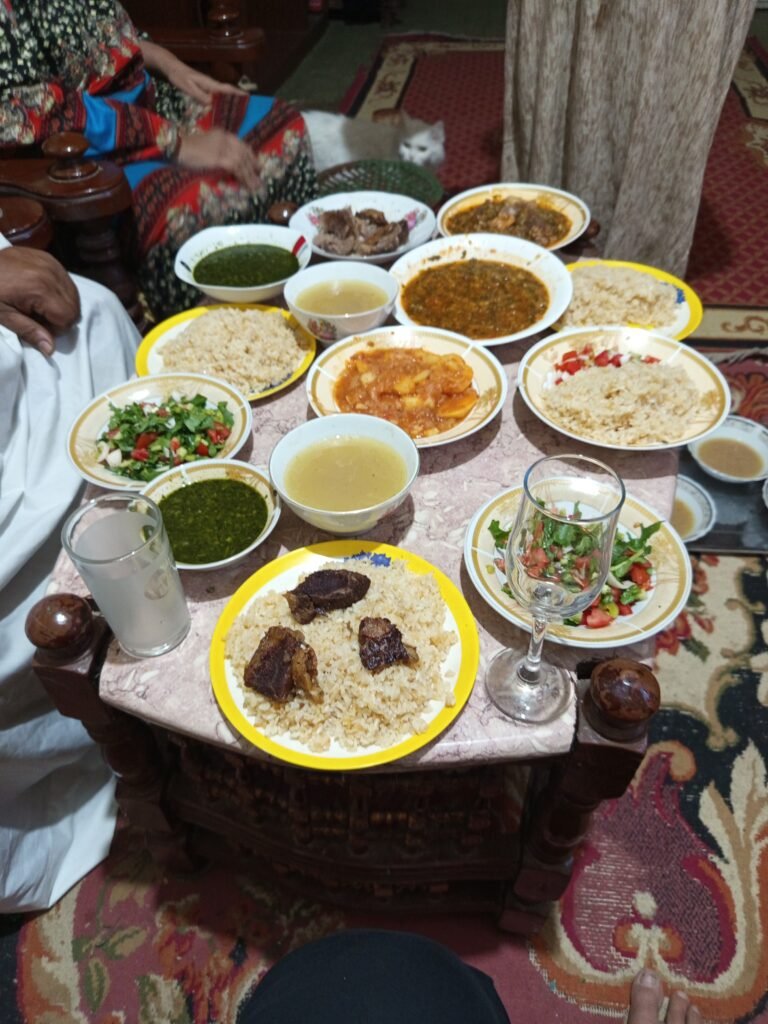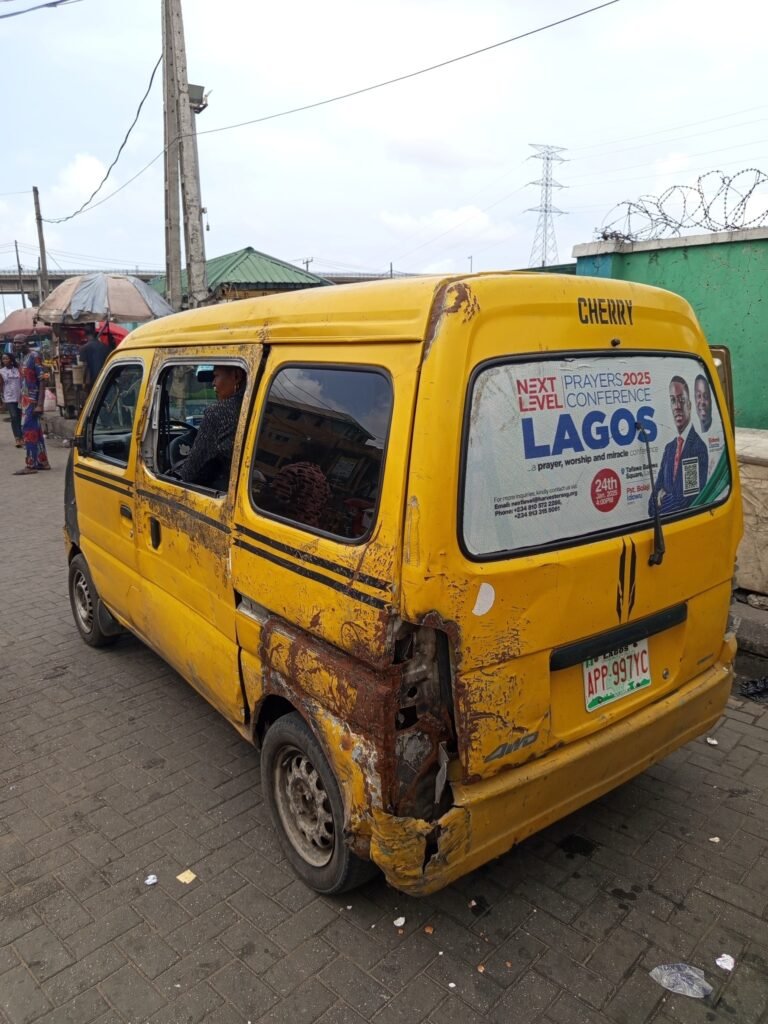Living without electricity and running water – my everyday life in a Nigerian village
I spent a few days with an incredibly warm-hearted family in a village in Nigeria. A family belonging to the middle class. No misery, no slums – but also no electricity. And that had been the case for several months.
The reason was a faulty transformer belonging to the electricity company. In Nigeria, it can take a long time to fix such issues – even in areas that belong to the lower middle class. And because the power was out, the electric water pumps didn’t work either.
Everyday life without running water – buckets instead of faucets
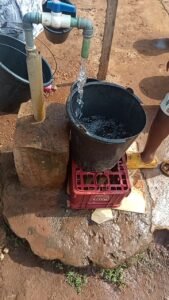
👋 Thanks for being here!
This blog shows what others often leave out – honest, raw, from a different angle. If you value these unusual perspectives, your support helps me keep writing. Whether it’s once or regularly – every small gesture means a lot.
🫶 Thank you for helping voices like mine be heard.
Fetching water instead of turning on the tap – that was the daily reality in the village.
Although the water source wasn’t far – about 200 to 300 meters – it felt unusual. For handwashing, cooking, cleaning dishes, and using the toilet, water had to be carried in buckets. In the morning, large containers in the kitchen and bathroom were filled. Then came hand-washing laundry, followed by another trip to fetch water – a never-ending cycle.
No electricity – and generators only in specific places
I came prepared: smartphone, power bank – everything fully charged. But I quickly realized: that wouldn’t be enough. The power bank barely provided one and a half charges, and there was no nearby socket to simply plug into.
Some small shops do operate generators – but that doesn’t mean you can just walk around the corner and charge your devices. You have to actively look for those shops. And sometimes they’re located more than a kilometer away.
Even if you find one, it’s wise to go early in the morning. Generators are expensive to operate and are only switched on for short periods. If you come too late, the power might already be turned off – and you’re left without a charge.
Why generators aren’t simply left running
Since the removal of fuel subsidies in 2023, a liter of petrol in Nigeria can cost over 600 Naira – a significant amount in everyday life. So shopkeepers think carefully about whether it’s worth switching them on. Often, electricity is only available when multiple devices need charging or freezers need to run.
Living simply – but not in poverty

The shower existed, but without water, it was unusable. TV, fan, light switches – purely decorative.
In the evenings, we sat together in the light of flashlights and phone torches, ate and talked. I shared a mattress on the floor with the family’s daughter. The parents and son shared a mattress in the other room.
This family was not poor, but lived simply. Enough to get by – but no abundance.
What we often take for granted
While in Europe we view electricity, Wi-Fi, running water, hot showers, and refrigerators as basic rights, millions of people worldwide live without them – even in middle-class households.
Not all people in Nigeria live without electricity – there are modern cities, affluent neighborhoods, and large villas with solar panels and air conditioning.
But even in villages with basic infrastructure, power outages and water shortages are part of everyday life – and not just for the poorest.
Why such experiences are eye-opening
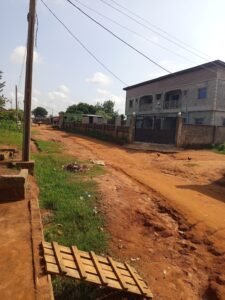
These days changed how I see the world. They made me reflect on what we call “normal”.
While we get annoyed if the Wi-Fi router needs restarting,
– others walk kilometers just to charge a phone.
While we take tap water for granted,
– others carry every liter by hand.
And while we expect everything to be instantly available,
– others live by the principles of sharing, saving, waiting.
Conclusion: Simple life, big warmth

Life without electricity and plumbing was challenging – but full of humanity.
💡 Life in a Nigerian village without electricity is not a sign of poverty, but often a reflection of infrastructure and supply challenges. And that’s exactly what makes these experiences so valuable – because they open our eyes.
